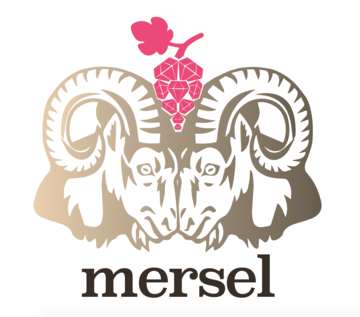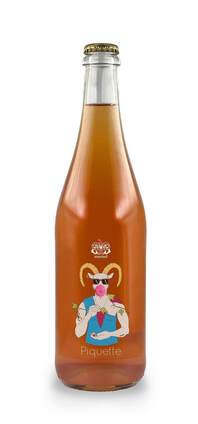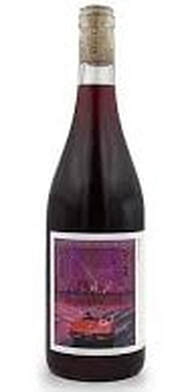Mersel Wine introduces a unique high-altitude, cool climate wine expression and experience from two regions - Mersel and Wadi Qannoubine.
Mersel is the highest viticulture area in the Northern Hemisphere ranging between 2000m and 2500m above sea level.
In Wadi Qannoubine, we aim to revive the viticulture of Lebanon’s indiginous grape varieties, like Merwah which is native to the North Eastern mountainous region.
Mersel Wine is committed to producing high-quality wines and spirits that are not mainstream in the Lebanese nor international market. We strive to produce wine with unique taste using environmentally friendly methods that are low in intervention, with a goal of sustainability, a positive rural life and social impact with our community.
Mersel
Location: Northern Bekaa, Ainata-Cedars region
Altitude: 2200M
Soil: Limestone, Clay
Grape Varieties: Pinot Noir, Cabernet Franc, Syrah, Sauvignon Blanc, Riesling...
One of the most unique viticulture regions in the world. This terrain was inhabited by Cedar and Juniper forests and it was a haven for the Nubian Ibex. Geographically, to the east, is the Temple of Baalbek, and to the west, the Cedars of Lebanon, which has the oldest cedar trees in the world. The climate is a combination of alpine and continental, with snow-blanketed rigid terrain in winter. Mersel has gravel limestone and clay vineyards on alluvial plains, encircled with Juniper trees and the odd cannabis plantations. There is an abundance of sun in summer; cool nights with over 20°C of diurnal temperature variation. It is considered to be the Lebanese Mendoza. The unfortunate reality of global warming has allowed us to explore this region, a quest that was unimaginable 10 years ago.
Wadi Qannoubine
Location: Bsharri district, North Lebanon
Altitude: 1300-1600M
Soil: Sandy, Volcanic, Limestone
Grape Varieties: Merwah
Wadi Qannoubine is a UNESCO World Heritage site. Wadi is arabic for “valley”, surrounded by historic villages, it’s minutes from ski resorts and the famous Cedars of God. The vineyards have not been tendered for years due to war, immigration and land mines. Wadi Qannoubine is a typical Mediterranean Alpine region with cool summers and cold winters. It has a maritime climate in the coastal areas with cool night time breezes that keep natural acids high.
Mersel is the highest viticulture area in the Northern Hemisphere ranging between 2000m and 2500m above sea level.
In Wadi Qannoubine, we aim to revive the viticulture of Lebanon’s indiginous grape varieties, like Merwah which is native to the North Eastern mountainous region.
Mersel Wine is committed to producing high-quality wines and spirits that are not mainstream in the Lebanese nor international market. We strive to produce wine with unique taste using environmentally friendly methods that are low in intervention, with a goal of sustainability, a positive rural life and social impact with our community.
Mersel
Location: Northern Bekaa, Ainata-Cedars region
Altitude: 2200M
Soil: Limestone, Clay
Grape Varieties: Pinot Noir, Cabernet Franc, Syrah, Sauvignon Blanc, Riesling...
One of the most unique viticulture regions in the world. This terrain was inhabited by Cedar and Juniper forests and it was a haven for the Nubian Ibex. Geographically, to the east, is the Temple of Baalbek, and to the west, the Cedars of Lebanon, which has the oldest cedar trees in the world. The climate is a combination of alpine and continental, with snow-blanketed rigid terrain in winter. Mersel has gravel limestone and clay vineyards on alluvial plains, encircled with Juniper trees and the odd cannabis plantations. There is an abundance of sun in summer; cool nights with over 20°C of diurnal temperature variation. It is considered to be the Lebanese Mendoza. The unfortunate reality of global warming has allowed us to explore this region, a quest that was unimaginable 10 years ago.
Wadi Qannoubine
Location: Bsharri district, North Lebanon
Altitude: 1300-1600M
Soil: Sandy, Volcanic, Limestone
Grape Varieties: Merwah
Wadi Qannoubine is a UNESCO World Heritage site. Wadi is arabic for “valley”, surrounded by historic villages, it’s minutes from ski resorts and the famous Cedars of God. The vineyards have not been tendered for years due to war, immigration and land mines. Wadi Qannoubine is a typical Mediterranean Alpine region with cool summers and cold winters. It has a maritime climate in the coastal areas with cool night time breezes that keep natural acids high.






